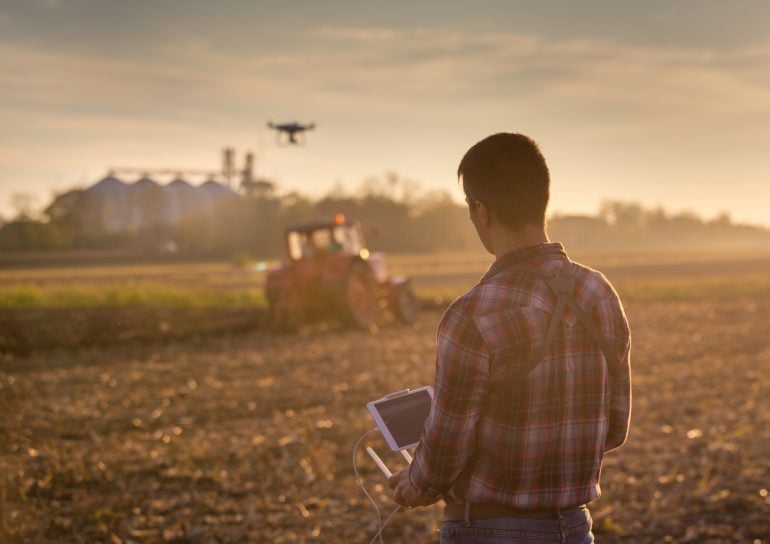Australia is well-positioned to build and maintain a large and healthy agricultural industry ($81 billion of production in 2021/22).
Australia also has a unique opportunity to leverage our higher-education infrastructure, skilled workforce and sophisticated capital markets to integrate modern technology into our agricultural industry for the purpose of vastly improving the volume of high-quality agricultural products being produced in the country.
Agricultural Technology or AgTech is the application of modern technology to agricultural practices and the industry as a whole is predicted to become a $100 billion industry in 2030.
Why? Modern technology is transforming the way we approach previously unanswerable problems and by applying these new technologies to the agricultural sector the quality and yield gains can be exponential.
Economically speaking, a 1% change to operational cost brought about by a breakthrough piece of technology could mean tens of millions of dollars in savings for a single operator. These savings can then be re-invested to further improve productivity. For ambitious individuals, there is promising monetary opportunity in the field.
The contribution of agtech to society is immense. As the APAC region further grows its middle class, a standard diet contains more agriculturally intensive foods, and concurrently, domestic demand consistently grows for locally-grown, sustainable food. In parallel, agricultural input costs are going up at a record pace.
Everyone is directly affected by the progress of agtech, whether they realise it or not. And that, in and of itself, makes it an exciting and worthwhile industry to be a part of.
To achieve its full potential the agtech industry requires talent from a wide range of tech-based disciplines, such as mechanical engineers, software developers, app developers, and machine learning engineers (just to name a few).
The problems we are trying to solve are too complex and in-depth for a team of generalists. We need teams of specialists bringing together a wide range of skills and experiences to develop truly innovative products.
Bringing experienced individuals from other industries is a short-cut way to bring modern best practices to agtech quickly.
The higher education system also plays a role in putting ambitious graduates on a path to have long and successful careers in the agtech space.
Beyond tech-based talent, the agtech industry also needs highly skilled professionals with experience in financing and investment, operations, marketing, and sales. It is also key for the industry to build visibility on the range of non-tech career options open in the agtech space.
Some of the successful applications of agtech include Cunningham Cattle Company and Boonderoo Pastoral that use AgriWebb farm management software for livestock management and record keeping.
Gundagai Lamb uses the technology I’ve been working on at MEQ Probe, to accurately measure the intramuscular fat of all lambs unlocking new market opportunities for the lamb industry. John Deere is working to reduce the amount of chemicals we use on our crops with their AI powered See and Spray technology.
It’s important to note that agtech might not be a career path for everyone – personal and professional interests could preclude one from pursuing the field. It entails working on-ground, getting outdoors, travelling long distances, getting one’s hands dirty, or working for months on-location at a distant farm away from family and friends.
However, it is a great fit for the right talent who cares about making a mark in the agtech space.
Our job is to find the individuals who fit the agtech sector’s requirements and highlight to them the benefits and possibilities of contributing to a field that genuinely contributes to society.




















Trending
Daily startup news and insights, delivered to your inbox.